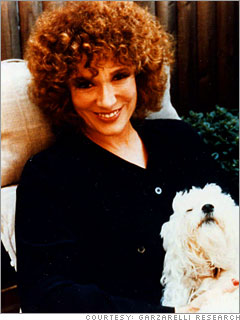President of Garzarelli Capital; in 1987 an analyst at Shearson Lehman
It was a happy day for me, because at the time I was running a mutual fund with about $500 million, and the fund's net asset value was up 50 cents that day, while most other funds were down. My indicators had suggested that the stock market was 35% overvalued, so about a week before I had sold half the stocks in the portfolio and then put in options, so I was well hedged for the crash. As a result, I was given credit for predicting it. It was a happy day in that sense. But in another sense it was a sad day because so many people lost money. I was heartbroken to see how many clients were upset.
That morning I didn't go to the office because I had a meeting at 10:30 and I was preparing at home. I was watching everything on TV, and I started to get heart palpitations. And I thought, "What is going on here? I'm hedged, my fund's going to be up today - what am I so nervous about?"
I called my cousin, a nurse, who lives two apartments away, and she said, "I think you're having a heart attack." And I said, "What? I'm in my early 30s!" So she called an ambulance. Which I thought was ridiculous. They came and said my heart was perfect; it was anxiety. I was upset about my clients' calling and everyone getting so nervous. Some were in tears. But then I was happy when my fund's results came out. That night I went to a Japanese restaurant and celebrated.
I felt awkward because I got so much attention. A few weeks after that I made a negative comment, and the market dropped 120 points that day. The Wall Street Journal wrote that I had moved the stock market, and I was very uncomfortable. My career was going very nicely until then, and it was too much attention. It was a lot of pressure. But the crash didn't shape the way I look at the market at all. It gave me even more confidence that the indicators are very good - that I should stick to them no matter what.

